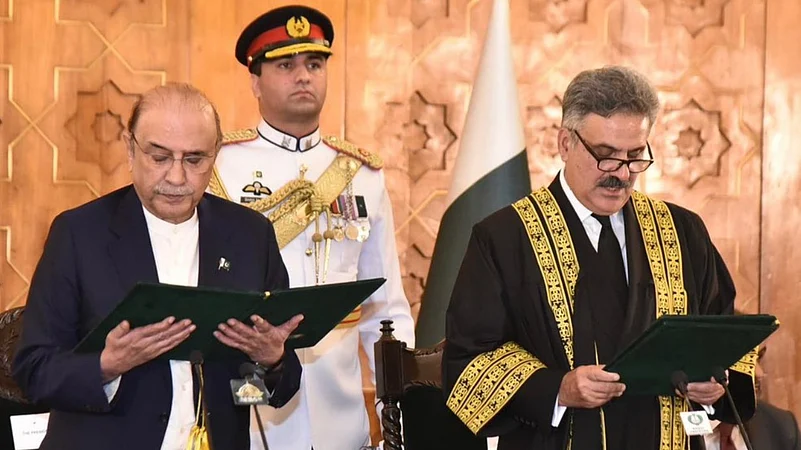The debate around the appointment of Pakistan’s Chief Justice continues to raise eyebrows. Justice Yahya Afridi was sworn in as the 30th Chief Justice of Pakistan (CJP) on Saturday, and his term will last three years, concluding on 26 October 2027.
President Asif Ali Zardari administered the oath during a ceremony attended by Prime Minister Shehbaz Sharif and senior military officials, including Army Chief Asim Munir. The event also saw the presence of other Supreme Court judges.
Justice Afridi's appointment was facilitated by a Special Parliamentary Committee formed under the controversial 26th Amendment.
What Is The 26th Constitutional Amendment?
Approved by the government on 20 October 2024, the amendment has changed the process for appointing the Chief Justice of Pakistan. It grants legislators a central role in the selection of the Supreme Court's Chief Justice.
Under the new law, the Chief Justice will be appointed by a parliamentary committee and will serve a fixed term of three years. Lawyers and the Human Rights Commission of Pakistan have expressed concerns that the amendment would bring the judiciary under the government’s control and have demanded its withdrawal.
This development follows a period marked by allegations of rigging in the February general elections and increasing tensions between the government and the judiciary, as the courts have issued rulings in favour of former Prime Minister Imran Khan and his Pakistan Tehreek-e-Insaf (PTI) party.
Previously, the next most senior judge, Mansoor Ali Shah would have taken over the position. Shah has consistently issued verdicts deemed favourable to Khan and the PTI.
The new amendments to the government have been criticised by Khan's popular opposition party, who in recent days had vowed that they would protest if Shah wasn't appointed as the chief justice.
Despite being imprisoned on what he claims are politically unjustified charges, Khan is still very popular and continues to challenge the establishment with frequent protests. In 2022, a no-confidence vote ousted him from office, which analysts say occurred because he lost the support of the military generals.



























